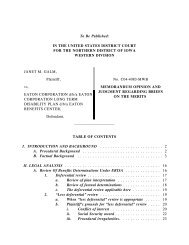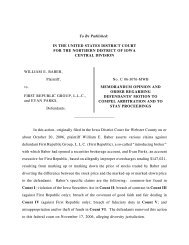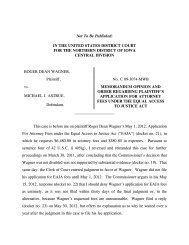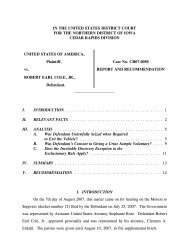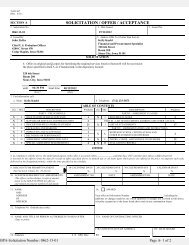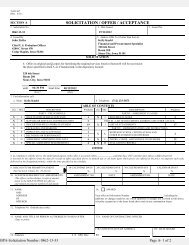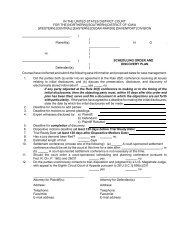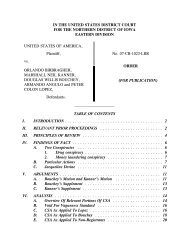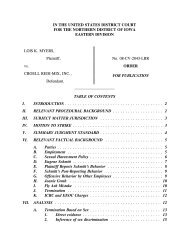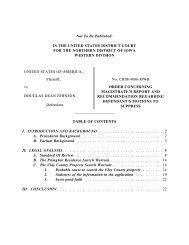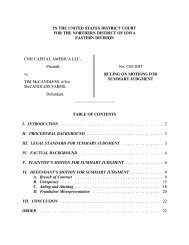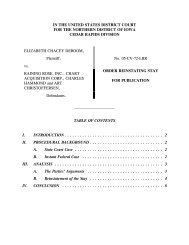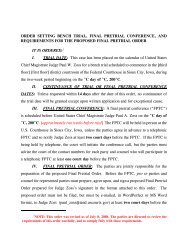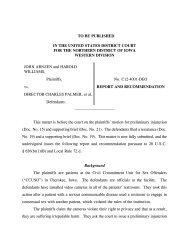Shannon v. Koehler - Northern District of Iowa
Shannon v. Koehler - Northern District of Iowa
Shannon v. Koehler - Northern District of Iowa
You also want an ePaper? Increase the reach of your titles
YUMPU automatically turns print PDFs into web optimized ePapers that Google loves.
state], testimony in the form <strong>of</strong> an opinion or inference otherwise admissible is not<br />
objectionable because it embraces an ultimate issue to be decided by the trier <strong>of</strong> fact.”<br />
FED. R. EVID. 704(a). The Eighth Circuit Court <strong>of</strong> Appeals has explained the interaction<br />
<strong>of</strong> Rule 704(a) with the general requirements for expert testimony found in Rule 702:<br />
Under Rule 702, a qualified expert may give opinion testimony<br />
if the expert's specialized knowledge would help the jury<br />
understand the evidence or decide a fact in issue. United States<br />
v. Arenal, 768 F.2d 263, 269 (8th Cir. 1985). Although an<br />
expert opinion is not inadmissible merely “because it embraces<br />
an ultimate issue to be decided by the trier <strong>of</strong> fact,” FED. R.<br />
EVID. 704(a), not all expert opinions are admissible. Arenal,<br />
768 F.2d at 269. Opinions that are “phrased in terms <strong>of</strong><br />
inadequately explored legal criteria” or that “merely tell the<br />
jury what result to reach” are not deemed helpful to the jury,<br />
FED. R. EVID. 704 advisory committee’s note, and thus, are<br />
not admissible under Rule 702.<br />
United States v. Whitted, 11 F.3d 782, 785 (8th Cir.1993); accord Dow Corning Corp. v.<br />
Safety Nat'l Cas. Corp., 335 F.3d 742, 751 (8th Cir. 2003) (affirming the trial court’s<br />
rejection <strong>of</strong> an expert’s legal opinions that “attempt[ed] to tell the court [as the trier <strong>of</strong> fact]<br />
what result to reach”) (citations omitted)). A court should exclude an expert’s testimony<br />
if it instructs the jury on the law, as the court alone defines the law for the jury. See<br />
United States v. Wells, 63 F.3d 745, 753 (8th Cir. 1995), rev’d on other grounds, 519<br />
U.S. 482 (1997).<br />
Applying these concepts to § 1983 cases governed by the Fourth Amendment<br />
reasonableness standard, the Eighth Circuit Court <strong>of</strong> Appeals, despite Rule 704, has<br />
limited the ability <strong>of</strong> experts to <strong>of</strong>fer opinions on the ultimate issue. In cases involving<br />
arrests without probable cause, even during a jury trial, probable cause is ultimately a<br />
question <strong>of</strong> law for the court, and the jury’s role at trial is “limited to settling disputes as<br />
59



